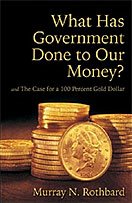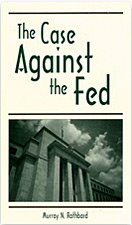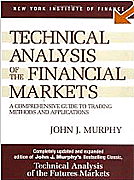Global systemic crisis in 2007
Global systemic crisis in 2007
Financial sector: « Another bubble » close to bursting
Public announcement GEAB N°10
(December 16, 2006) -
Finance is one of the four sectors identified by LEAP/E2020 in the December issue of their confidential letter (the GlobalEurope Anticipation Bulletin N°10) as likely to be severely affected by the development of the global systemic crisis in 2007 (1). The other three sectors are: international trade, exchange rates, and energy.
A large number of events - whose importance began to appear clearly at the end of 2006 - is about to thrust the world's financial sector into a process of deep crisis: depreciation of US dollar-denominated assets, monetisation of US debt, fast degradation of US banks' and of some EU banks' balance-sheets, low level of banks' reserves, fast depreciation of housing loans (2) and recession of the US economy.
For example, the value of US dollar-denominated assets worldwide (3) compared to the composite basket of currencies of the US main trade partners, decreased by USD 2,000 billion only because of the US currency's loss in value. Another example, because of the same devaluation, the US debt fell by more than the US trade deficit's worth (forecast: USD 750 billion) or than the balance of payment deficit's worth (forecast: USD 900 billion) (4).
A large number of events - whose importance began to appear clearly at the end of 2006 - is about to thrust the world's financial sector into a process of deep crisis: depreciation of US dollar-denominated assets, monetisation of US debt, fast degradation of US banks' and of some EU banks' balance-sheets, low level of banks' reserves, fast depreciation of housing loans (2) and recession of the US economy.
For example, the value of US dollar-denominated assets worldwide (3) compared to the composite basket of currencies of the US main trade partners, decreased by USD 2,000 billion only because of the US currency's loss in value. Another example, because of the same devaluation, the US debt fell by more than the US trade deficit's worth (forecast: USD 750 billion) or than the balance of payment deficit's worth (forecast: USD 900 billion) (4).

World's payment balances in 2005 (States in surplus in blue (dark blue = Euroland) / States in deficit in red)
The monetisation of the US debt (anticipated in February 2006 by LEAP/E2020 (5)) directly affects the balance sheets of the big international financial players, with some effects that should become more obvious in 2007.
In the United States, a growing number of financial institutions is beginning to announce that the bursting of the real-estate bubble and the increasing amount of default on housing loan repayments has started to impact on banks' (6) and loaning institutions' results. For instance, due to the market's fast degradation, the US government non longer even tries to look into Fanny Mae's and Freddy Mac's accounts, the two giant quasi-government financial institutions who together weigh more than half of the US mortgage market (7). Thus Fanny Mae has not presented any quarterly or yearly report since 2004 and must ask for an exemption in order to remain listed on the New York Stock Exchange (8) and continue to increase its market share. Less than a month ago, Kevin M. Warsh, governor of the New York Federal Reserve, warned against risks of systemic crisis for the US loan mortgage market due to Fanny Mae and Freddy Mac accounting practices (9). Those risks are likely to cross US boarders since foreign investors, namely Asian, who walked away from US Treasury Bonds, have started a few months ago to buy Fanny Mae and Freddy Mac stocks.
Moreover, for many years, the US authorities have allowed banks to diminish drastically their asset reserves while making massive bets on the derivatives market where the risks are high. The chart below shows how those Wall Street's giants (such as JPMorgan/Chase or CityBank or Bank of America, who were on top of all financial news in the past months), with counterparties close to none, are in fact doomed to bankruptcy in case a big crisis occurs. This provides a rather eloquent image of the frailty of the hedging sector banks invested in so massively.
In the United States, a growing number of financial institutions is beginning to announce that the bursting of the real-estate bubble and the increasing amount of default on housing loan repayments has started to impact on banks' (6) and loaning institutions' results. For instance, due to the market's fast degradation, the US government non longer even tries to look into Fanny Mae's and Freddy Mac's accounts, the two giant quasi-government financial institutions who together weigh more than half of the US mortgage market (7). Thus Fanny Mae has not presented any quarterly or yearly report since 2004 and must ask for an exemption in order to remain listed on the New York Stock Exchange (8) and continue to increase its market share. Less than a month ago, Kevin M. Warsh, governor of the New York Federal Reserve, warned against risks of systemic crisis for the US loan mortgage market due to Fanny Mae and Freddy Mac accounting practices (9). Those risks are likely to cross US boarders since foreign investors, namely Asian, who walked away from US Treasury Bonds, have started a few months ago to buy Fanny Mae and Freddy Mac stocks.
Moreover, for many years, the US authorities have allowed banks to diminish drastically their asset reserves while making massive bets on the derivatives market where the risks are high. The chart below shows how those Wall Street's giants (such as JPMorgan/Chase or CityBank or Bank of America, who were on top of all financial news in the past months), with counterparties close to none, are in fact doomed to bankruptcy in case a big crisis occurs. This provides a rather eloquent image of the frailty of the hedging sector banks invested in so massively.

Seven largest US banks' counter-party to their investment on the derivatives market - 2005 (Source: Office of the Comptroller of the Currency / US Department of Treasury)
--------
Notes:
(1) With a EURUSD exchange rate now steadily above 1.30, the LEAP/E2020 researchers feel entitled to consider that the impact phase of the global systemic crisis has well started. LEAP/E2020 calculated that an operator who invested 100,000 Euros and followed over the last 10 months their anticipatory advices in terms of EURUSD exchange rate or US real-estate evolution, earned a minimum of 15,000 USD (currency) or 10,000 USD (US real-estate). A good proof that strategic analysis and individual short-term choices can gather in anticipation.
(2) Source : « Mortgages delinquencies : a rising threat » AP/Yahoo, 11/12/2006
(3) Sources : International Bank of Settlements and GEAB N°2
(4) A 10% loss of the US dollar against the currencies of its main trade partners corresponds to an USD 850 billion reduction on the relative value of the US debt (source: US National Debt Clock), with a US trade deficit estimated to be around USD 750 billion in 2006 and a US balance of payment deficit over USD 900 billion (source: Roubini Global Economics Service). Thanks to the devaluation of the dollar, the US government transfers an increasing amount of its deficits to its creditors and trade partners.
(5) “With their decision to put an end to the publication of M3 and other indicators designed to measure the evolution of Dollar ownership worldwide, the US authorities initiated a policy of « hidden monetisation » of the US debt. The Bush administration's incapacity to handle the various deficits (budget, trade) and the related debt will result in a monetary creation of unequalled proportion, leading to a dilution of the American debt in an ocean of Dollars. The process has in fact already started: during the first three and a half months of the US fiscal year (beginning in October), the Federal Reserve has increased by 320 billion USD its stock of currency, that is 5 times more than it did over the same period last year”, source GEAB N°2, 16/02/2006
(6) As already announced by the world's third largest bank, HSBC. Source : [Banknet360]url:http://, 06/12/2006
(7) Source : « Time to Reform Fanny Mae and Freddy Mac », Heritage Foundation, 20/05/2006
(8) Source : “Fanny notes more accounting problems”, 10/11/2005, MarketWatch/DowJones
(9) Source : « Financial Markets and the Federal Reserve », Governor Kevin M. Warsh, Federal Reserve, 21/11/2006
Notes:
(1) With a EURUSD exchange rate now steadily above 1.30, the LEAP/E2020 researchers feel entitled to consider that the impact phase of the global systemic crisis has well started. LEAP/E2020 calculated that an operator who invested 100,000 Euros and followed over the last 10 months their anticipatory advices in terms of EURUSD exchange rate or US real-estate evolution, earned a minimum of 15,000 USD (currency) or 10,000 USD (US real-estate). A good proof that strategic analysis and individual short-term choices can gather in anticipation.
(2) Source : « Mortgages delinquencies : a rising threat » AP/Yahoo, 11/12/2006
(3) Sources : International Bank of Settlements and GEAB N°2
(4) A 10% loss of the US dollar against the currencies of its main trade partners corresponds to an USD 850 billion reduction on the relative value of the US debt (source: US National Debt Clock), with a US trade deficit estimated to be around USD 750 billion in 2006 and a US balance of payment deficit over USD 900 billion (source: Roubini Global Economics Service). Thanks to the devaluation of the dollar, the US government transfers an increasing amount of its deficits to its creditors and trade partners.
(5) “With their decision to put an end to the publication of M3 and other indicators designed to measure the evolution of Dollar ownership worldwide, the US authorities initiated a policy of « hidden monetisation » of the US debt. The Bush administration's incapacity to handle the various deficits (budget, trade) and the related debt will result in a monetary creation of unequalled proportion, leading to a dilution of the American debt in an ocean of Dollars. The process has in fact already started: during the first three and a half months of the US fiscal year (beginning in October), the Federal Reserve has increased by 320 billion USD its stock of currency, that is 5 times more than it did over the same period last year”, source GEAB N°2, 16/02/2006
(6) As already announced by the world's third largest bank, HSBC. Source : [Banknet360]url:http://, 06/12/2006
(7) Source : « Time to Reform Fanny Mae and Freddy Mac », Heritage Foundation, 20/05/2006
(8) Source : “Fanny notes more accounting problems”, 10/11/2005, MarketWatch/DowJones
(9) Source : « Financial Markets and the Federal Reserve », Governor Kevin M. Warsh, Federal Reserve, 21/11/2006















![[Most Recent Quotes from www.kitco.com] [Most Recent Quotes from www.kitco.com]](http://www.kitco.com/images/live/t24_au_en_usoz_6.gif)
![[Most Recent Quotes from www.kitco.com] [Most Recent Quotes from www.kitco.com]](http://www.kitco.com/images/live/au_go_0030_ny.gif)
![[Most Recent Quotes from www.kitco.com] [Most Recent Quotes from www.kitco.com]](http://www.kitco.com/images/live/au_go_0365_ny.gif)
![[Most Recent Quotes from www.kitco.com] [Most Recent Quotes from www.kitco.com]](http://kitconet.com/charts/metals/silver/t24_ag_en_usoz_4.gif)

















0 ΣΧΟΛΙΑ (COMMENTS):
Post a Comment
<< Home